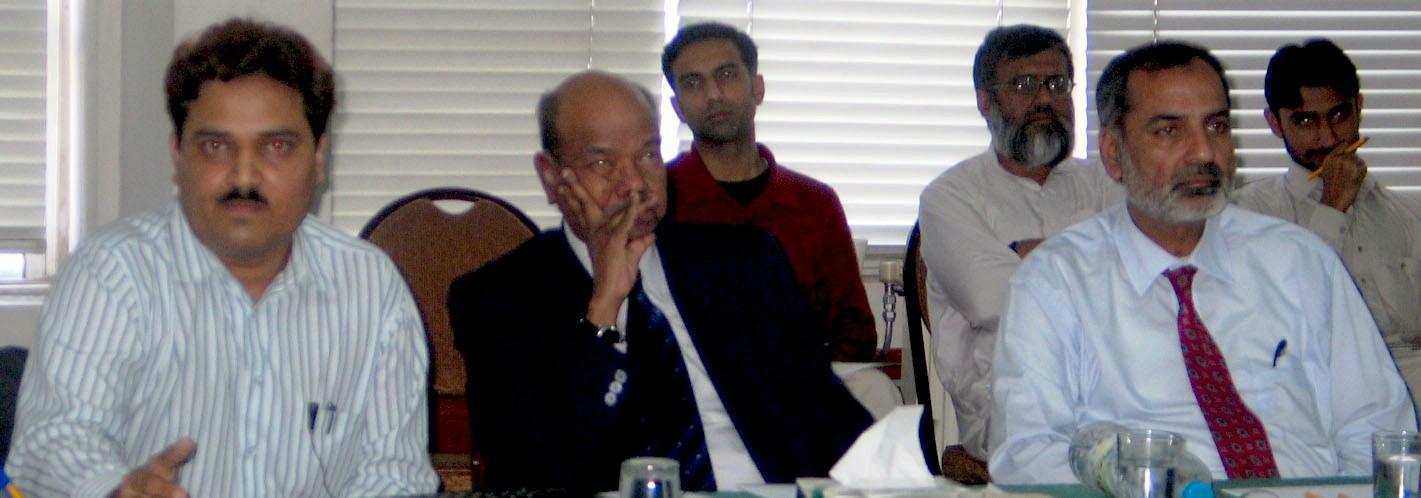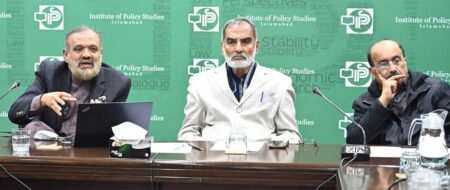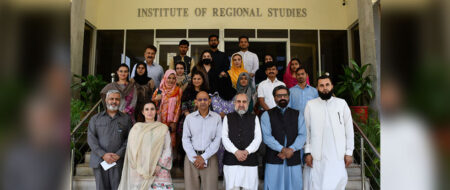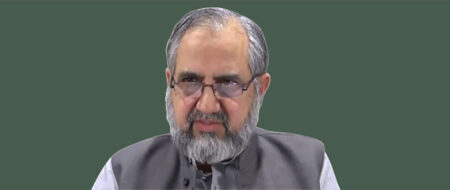A roundtable was organized under the chairmanship of Mr. Fasihuddin, former Chief Economist, and member of NAC to discuss the “Impact of Fiscal Adjustment on Growth and Social Sector” on March 12, 2009.
A roundtable was organized under the chairmanship of Mr.
Fasihuddin, former Chief Economist, and member of
NAC to discuss the “Impact of Fiscal Adjustment on Growth and Social Sector” on March 12, 2009.
Summary of the meeting is as follows:
 The International Monetary Fund (IMF) has assumed a central role of providing financial assistance and lending a sort of credibility for Foreign Direct Investment (FDI) and assistance from World Bank, Asian Development Bank etc.
The International Monetary Fund (IMF) has assumed a central role of providing financial assistance and lending a sort of credibility for Foreign Direct Investment (FDI) and assistance from World Bank, Asian Development Bank etc.
Islamabad went to IMF for Stand-by Arrangement (SBA) as there was said to be no alternative available. It could avoid being default and capture some semblance of stability in terms of foreign reserves at certain economic and non-economic costs. In economic terms, the whole policy is now hostage to the IMF.
The signs show that this will be a long term engagement because the desired stabilization will hardly be achieved after one and half year. It is right to say that the arrangement was rendered with political consideration at very harsh terms and conditions. The harshest conditions are: raising the interest rate, withdrawal of the subsidy as well as adjustment in energy prices and reduction of development expenditure, which will have a negative impact on public and private sector investment.

IMF visualizes very optimistic scenario amidst global financial crisis and contraction in the advanced countries coupled with unstable domestic political scenario, leakage and mismanagement on part of provincial and federal governments, shortfalls of revenue, energy crisis, rise in the cost of investment, reliance on external resources, social distortions, inflation and unemployment. Some areas which have been substantially growing in recent past, particularly the services sector such as telecommunications and banking, have reached a plateau.
In this scenario, governance with regard to policy making and implementation needs to be improved but picture in both the areas is bleak. In addition, a very comprehensive long-term planning of growth, poverty alleviation and national security is required where there should be a consensus of all stakeholders, whether they are in government or in the opposition. The roundtable, coordinated by Usman Ali, was followed by an interactive question-answer session.
 The International Monetary Fund (IMF) has assumed a central role of providing financial assistance and lending a sort of credibility for Foreign Direct Investment (FDI) and assistance from World Bank, Asian Development Bank etc.
The International Monetary Fund (IMF) has assumed a central role of providing financial assistance and lending a sort of credibility for Foreign Direct Investment (FDI) and assistance from World Bank, Asian Development Bank etc. IMF visualizes very optimistic scenario amidst global financial crisis and contraction in the advanced countries coupled with unstable domestic political scenario, leakage and mismanagement on part of provincial and federal governments, shortfalls of revenue, energy crisis, rise in the cost of investment, reliance on external resources, social distortions, inflation and unemployment. Some areas which have been substantially growing in recent past, particularly the services sector such as telecommunications and banking, have reached a plateau.
IMF visualizes very optimistic scenario amidst global financial crisis and contraction in the advanced countries coupled with unstable domestic political scenario, leakage and mismanagement on part of provincial and federal governments, shortfalls of revenue, energy crisis, rise in the cost of investment, reliance on external resources, social distortions, inflation and unemployment. Some areas which have been substantially growing in recent past, particularly the services sector such as telecommunications and banking, have reached a plateau.











